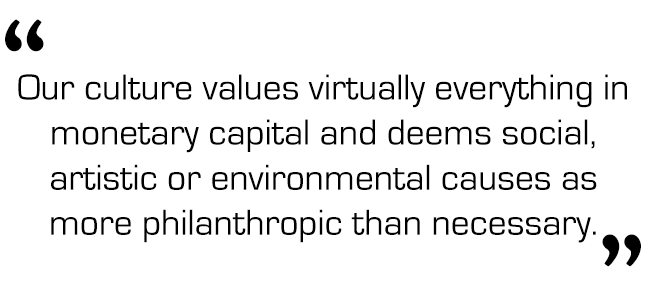Being a humanities major means saving the world on less than a dime
October 9, 2014
Many college students accept unpaid internships as inevitable and necessary steps to advancing in the workforce hierarchy. Despite the fact that students are willing to work for free, obtaining one can be difficult. Getting into a competitive internship is one thing, but affording the internship is unfortunately another, especially when not every student has parents or a school willing to generously dish out a few grand to cover rent, food and transportation expenses for a summer.
However, this predicament falls much heavier on all the political science, English, sociology and cognitive science majors looking for work in research, non-profit or policy work. As a double humanities major, I can attest to the struggle. Three out of my four college internships have been unpaid. I have yet to hear of a banking, consulting or engineering internship that does not pay.
The unpaid internship has received scrutiny and criticism—and rightly so. It is understandable that an independent literary magazine cannot afford to shave already precious dollars from a measly budget to pay a temporary summer intern. However, it is rather impossible to believe that prominent organizations like the United Nations, VICE or Environment America cannot scrape together a minimum-wage stipend for summer work.
The prestigious name on a student’s resume is compensation enough, right? Not quite. There lies an underlying message behind the lack of paid internships for causes of justice, equality or societal betterment. Humanitarian and social justice organizations are sending a contradictory message: Work in social welfare, environmental stewardship or the arts is not valuable.

But the fault lies not with the organizations trying to improve these issues, but with our society at large. Our culture values virtually everything in monetary capital and deems social, artistic or environmental causes as more philanthropic than necessary.
Non-profit organizations often rely on donations to stay afloat—in money or in the donated time of 20-somethings in pursuit of a bachelor’s degree. It remains an unfortunate reality. Also limiting is the trend that these internship or entry-level positions of social justice or the arts are increasingly filled by students who can have their parents fund them. Many positions are located in hub cities where the cost of living is high. Even splitting a work week between being a waiter or waitress and an editorial intern in San Francisco would be nearly impossible unless you were living at the local YMCA and eating canned beans each night.
What message does that send? Only the rich can save the world? Only the rich are smart enough to solve such issues as poverty, climate change and economic inequality? The irony is that the rich are often the ones contributing to such issues.
Unpaid internships are essentially volunteering, although hirers would never refer to them as so on any job description or webpage. And a working position is not the same as volunteering. It is wrong to see the humanities, journalism or the arts as “hobbies” or as second tier to finance or engineering or medicine. The social sciences and humanities define society and the human experience. They are integral and intertwined with all other fields. Engineers, computer programmers, financiers and all their paid interns help create the practical infrastructure to support society. Social workers, writers and teachers shape the human beings that are society.
Not compensating interns doing field research, writing or reporting is dismissive of those fields. It reflects our cultural neglect to celebrate and compensate the worth of things like social, human and artistic capital. People like journalists, musicians and ecologists all understand the world in creative, empathetic ways that are indispensable in order for us to be in tune and engaged with the world around us.
Laura Hurst is a senior student grateful that she gets paid more to write articles for The Observer than for a semester as an intern.


